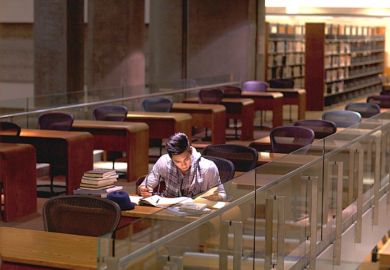Helen Vendler's latest book is an exhaustive reading of Yeats's poetry in its engagement with poetic forms. In just under 400 pages, she looks at the way he uses a variety of forms, from trimeter to ottava rima, from ballad to sonnet, at all the stages of his poetic career. She has made productive use of the information about drafts made available through the Cornell Yeats project, and of course knows the verse itself very well. It's high time such a book existed, and the conditions have been ripe for a while for a re-examination of Yeats's prosody and its relation to poetic thinking. So why is this such a disappointing and unsatisfactory book?
Primarily because it has so little thinking in it. It is quite untouched by all the most interesting work of the past ten or 15 years on what prosody is, how poetic rhythm works, and the whole phenomenology of what constitutes poetic epistemology. The book's intellectual framework is the canonical tradition, an unproblematic reliance on the terminology of classical feet as descriptive of verse movement, and an alarmingly unsophisticated critical sensibility. Astonishingly she writes that, although Yeats's inventiveness lay chiefly in his use of rhythm, "because we have no universally accepted notation for rhythmic effects ... I leave the rhythmic field aside here ... Stanza form is more amenable to comment". So she sticks to stanza form and trochaic feet.
Vendler's main purpose in the book is to show that Yeats did not "decide on forms at random": he chose them, or exploited them, for their suitability to his purpose. Her purpose is to try to explain what traditional forms meant to him, and how he renewed them. Her method is essentially biographical, a reconstitution of Yeats's intentions, set within close readings of a large number of poems. Her reference points are the major poets of the English tradition: Shakespeare, Milton, Keats, Tennyson and so on (she writes that "the principal historical function of poems is to enable the production of more poems"); there is little recourse to the work of his contemporaries. Each chapter divides in a similar way between Yeats's apprenticeship, his engagement with politics, and an achieved maturity; each time, the biographical focus provides the grounds for a revaluation of a verse form or a meter. So his middle-period tetrameters are "infused with satiric drive and wit"; or The Second Coming "rebels in an almost 'Irish' way, against English Enlightenment models of a progressive view of history" (the scare quotes around Irish are typical of her reluctance to think things through).
Throughout the book she romanticises the process of writing poems or, as she puts it, "the ardent and arduous passage from concept to execution", and reveals a concomitant teleological trust in the finished poem's perfection. Never, for example, a shard of suspicion that Yeats's fondness for chiasmic structure might mask a specious or unworked-out argument. The praise of Yeats's mastery of verse forms becomes wearing, and the reader gets tired of descriptions of an "athletically sinewed single sentence" or claims that a closing couplet is "deeply solacing".
Worse is her insistence that form is always semantically mimetic, as in "the enjambments ... mimic the urge to escape" or "Yeats intends to represent, I think, the airborne escape out of the unbolted stable door of poet and Pegasus together. If we do not recognise the poem as a sonnet manqué, we miss the fine wit of the close, the 'whoosh' of non-verbal air after the thirteenth line".
The whole argument of the book descends from time to time into triumphant banality, as when we learn that a poet "can silently co-operate with his chosen meter, play ostentatiously with it, or even contend against it"; and the archaic "contend against" is characteristic of Vendler's occasionally comic self-importance.
Although there is plenty of useful material here, the book is a missed opportunity. Because, as Yeats himself put it in To Ireland in the Coming Times, "to him who ponders well, / My rhymes more than their rhyming tell".
Our Secret Discipline: Yeats and Lyric Form
By Helen Vendler
Oxford University Press
448pp
£19.99
ISBN 9780199281862
Published 8 November 2007
Register to continue
Why register?
- Registration is free and only takes a moment
- Once registered, you can read 3 articles a month
- Sign up for our newsletter
Subscribe
Or subscribe for unlimited access to:
- Unlimited access to news, views, insights & reviews
- Digital editions
- Digital access to THE’s university and college rankings analysis
Already registered or a current subscriber?



